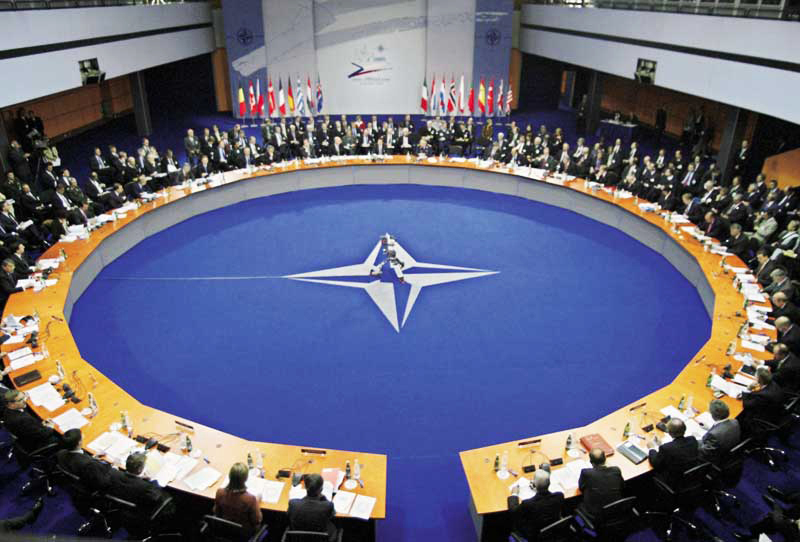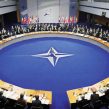
THE PRO-MAP FACTION SUCCEEDS AT NATO SUMMIT
Publication: Eurasia Daily Monitor Volume: 5 Issue: 66
By:

NATO’s recently concluded summit in Bucharest highlighted the political weight of the new member countries from Central and Eastern Europe in the alliance’s decision-making processes. Aligned with the United States, Canada and two small West European countries, the new members formed the critical mass that opened NATO’s door to Ukraine and Georgia.
This combination prevailed over a strong group of old members (Germany, France, Italy, Spain, the Benelux and other countries) that had opposed Membership Action Plans (MAPs) for Ukraine and Georgia, playing into Russia’s hands. This controversy held center stage in the run-up to the summit and during the event.
The pro-MAP countries achieved a net gain that exceeded their own initial proposals or any party’s expectations. They generated a dynamic at the summit that led to unanimous approval of a political commitment to ultimate full membership of Ukraine and Georgia in NATO. Thus, the goal is irrevocably enshrined in NATO’s decisions. The MAPs to follow, probably within a year, are a technical process toward that goal.
This success protects the integrity of the Alliance’s decision-making against an indirect Russian say in that process. Moscow tried a tactic in this case that it often employs toward the European Union, namely, using special relations with individual member countries to frustrate collective decisions. In this case at NATO, the pro-MAP countries’ success averted a precedent, whereby Moscow would have manipulated Berlin into blocking a NATO decision.
Moscow takes the line that it seeks a voice, rather than a veto, in the Alliance’s deliberations. Russian President Vladimir Putin telephoned French President Nicolas Sarkozy to say, “I don’t have a veto, but I have an opinion” on the Ukraine and Georgia decisions (Le Monde, April 4). Berlin similarly tried to square the circle by claiming that a Russian say was unacceptable but that the Russian view should be taken into account. That distinction seemed tenuous and risky.
The new member countries’ informal alignment on this issue is a natural follow-up to the Vilnius Ten process, in which these countries had earlier joined forces as aspirants to NATO membership. Launched in 1999, the Vilnius Ten process culminated in the accession of seven countries to NATO as full members in 2004 (the Baltic states, Slovakia, Slovenia, Romania and Bulgaria). The group of earlier entrants–Poland, the Czech Republic, and Hungary–was closely involved with the Vilnius Ten all along. Two more participants in that process, Croatia and Albania, were invited to commence accession procedures at the Bucharest summit.
The new member countries regard Ukraine’s and Georgia’s future as a matter of vital interest to themselves and to NATO. In the run-up to the summit they signed, alongside Canada (the United States remained in the background), a joint declaration urging approval of Ukrainian and Georgian MAPs in Bucharest. Only the Socialist-led Hungarian government, engaged in a mini-Ostpolitik of its own, dropped out of that group and joined the anti-MAP countries at the summit.
Denmark was set to sign the pro-MAP declaration ahead of the summit, but the German Ministry of Foreign Affairs persuaded its Danish counterpart to delay that gesture. Danish political leaders, however, prevailed; and the country joined the pro-MAP countries at the summit, as did Iceland. Against this backdrop, the work of U.S. President George W. Bush throughout the summit made the decisive difference for opening the door to Ukraine and Georgia.
Britain remained on the sidelines throughout the presummit and summit debate. Prime Minister Gordon Brown told Bush that his government was for the MAPs in principle, but would not pursue the issue. Moreover, “We are agnostic–if there is a consensus, we would agree, but we don’t support pushing for it now.” “Cautious to a fault,” an editorialist commented (The Times [London], April 4).
The positions of most anti-MAP countries were softer or even fluid, compared with Berlin’s position. French Prime Minister Francois Fillon’s openly Russia-First position on arrival at the summit (see EDM, April 2, 3) turned out not to reflect President Nicolas Sarkozy’s policy. The negative Dutch position reflected only the views of parts of the Dutch coalition government. Italy had announced in advance that it could switch from its anti-MAP position to a pro-MAP one, depending on circumstances. Greece, another naysayer, lost all credibility during the summit by vetoing Macedonia’s accession to the alliance.
Thus the German-led anti-MAP group partly unraveled, its remaining members now reluctant to stick closely to Berlin. Minister of Foreign Affairs Frank-Walter Steinmeier overplayed his hand by suggesting that Russia deserved some compensation at the expense of Ukraine and Georgia, in return for Moscow’s presumed “loss” in Kosovo. This suggestion triggered a backlash in the German press, with Der Spiegel (April 3) characterizing Steinmeier as a leading appeaser, which contributed to undermining Berlin’s position at the summit.
At that point, Germany risked isolation while Chancellor Angela Merkel faced intense lobbying from the United States and the Central-East European countries. There were moments during the summit when ten to fifteen allied leaders were clustering around Merkel to present arguments for the Ukrainian and Georgian MAPs and, ultimately, for the more ambitious formula that committed NATO to approval of Ukrainian and Georgian membership in due course.
The winning arguments turned out to be those defending NATO’s bedrock principles: No outside say in internal decisions, the open door and assessment of the aspirant countries on their own merits. These principles were at stake and were successfully protected at this summit through the decision on Ukraine and Georgia.




